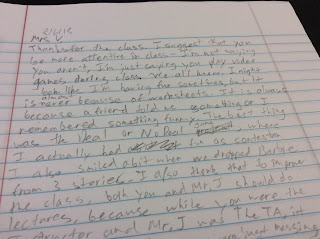Prompt: "Know you don't know"
I agree with the prompt: "know you don't know". My understanding of this prompt is that you should know what you don't know. That way, you know how to improve and learn more.
Most people who don't know much think they know everything. This is because they don't know what they don't know. People who know more realize that there are a lot of things that they haven't learned. This way, they strive to improve, and get better results than the people who stop learning when they think they know everything. Think of the Chinese story about an old man and a person who thought he knew everything. The old man was wearing a cap, and asked the person how much stuff he knew. The person said: "I know as much as there are hairs on your head." Then the old man took off his cap, and it turned out he had no hair! The person thought he knew so much that he made a reckless assumption. In actuality, he didn't know much. He didn't try to find out what he didn't know - how many hairs were on the old man's head - because he thought he knew everything. This tale proves that people who think they know everything are usually not very knowledgeable - and so you should know what you don't know, because it prevents you from thinking you know everything and making assumptions.
An example of this is chess. You should always look into things you don't know. Otherwise, if somebody plays an opening you don't know, you're dead. So you need to look into different strategies and openings, widening your knowledge and helping you understand what other people play. This would also prevent you from losing more games. Like if someone plays d4 and you don't recognize the opening, you will probably fall for the Queen's Gambit, which wins for White. Therefore, you should always look into things you don't know.
Knowing what you don't know, you should exploit your strengths better, and try to arrange things according to your weaknesses. One example is studying. If you know that you study better in the morning, you should schedule your day so studying is in the morning, and other things should be in the afternoon. You know that you aren't good at studying in the afternoon, your weakness, so you should avoid studying in the afternoon, instead doing it in the morning. In chess, you should use the strategies and openings you are familiar with, and avoid the ones you aren't familiar with. That way, you can play for your strengths, not your weaknesses.
In conclusion, I agree with the phrase "know you don't know" because it gives good advice on how to get a better job, and expand your knowledge.
Most people who don't know much think they know everything. This is because they don't know what they don't know. People who know more realize that there are a lot of things that they haven't learned. This way, they strive to improve, and get better results than the people who stop learning when they think they know everything. Think of the Chinese story about an old man and a person who thought he knew everything. The old man was wearing a cap, and asked the person how much stuff he knew. The person said: "I know as much as there are hairs on your head." Then the old man took off his cap, and it turned out he had no hair! The person thought he knew so much that he made a reckless assumption. In actuality, he didn't know much. He didn't try to find out what he didn't know - how many hairs were on the old man's head - because he thought he knew everything. This tale proves that people who think they know everything are usually not very knowledgeable - and so you should know what you don't know, because it prevents you from thinking you know everything and making assumptions.
An example of this is chess. You should always look into things you don't know. Otherwise, if somebody plays an opening you don't know, you're dead. So you need to look into different strategies and openings, widening your knowledge and helping you understand what other people play. This would also prevent you from losing more games. Like if someone plays d4 and you don't recognize the opening, you will probably fall for the Queen's Gambit, which wins for White. Therefore, you should always look into things you don't know.
Knowing what you don't know, you should exploit your strengths better, and try to arrange things according to your weaknesses. One example is studying. If you know that you study better in the morning, you should schedule your day so studying is in the morning, and other things should be in the afternoon. You know that you aren't good at studying in the afternoon, your weakness, so you should avoid studying in the afternoon, instead doing it in the morning. In chess, you should use the strategies and openings you are familiar with, and avoid the ones you aren't familiar with. That way, you can play for your strengths, not your weaknesses.
In conclusion, I agree with the phrase "know you don't know" because it gives good advice on how to get a better job, and expand your knowledge.


Comments
Post a Comment